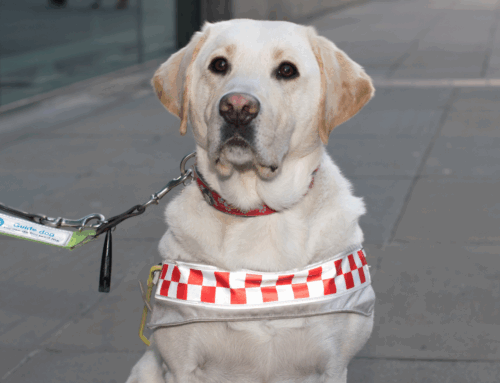Internalised ableism is complex, to say the least.
So many people go through their early lives believing they are ‘different’ and ‘weird,’ only to realise they are neurodivergent. As a 17-year-old neurodivergent person, who was only diagnosed at 16, it will take me quite a while to escape the feelings of doubt and shame, especially at an age where transition periods are expected anyways.
These feelings have led me to have difficulties with my self-esteem being non-existent and my confidence shattered. In a world where we experience lots of negatives, this can lead to us internalising them.
What is ableism?
Ableism is any prejudice, bias, or discrimination directed toward people living with disabilities. For me, this occurs most often through denial of my neurodivergence. Phrases such as ‘but you don’t look autistic’ or ‘you seem normal’ are still common in society today.
What is internalised ableism?
Internalised ableism, by definition, is when a disabled person absorbs the opinions and viewpoints of the ableist society. Personally, I compare myself to neurotypical people too much, placing unrealistic expectations upon myself and feeling like I should ‘just do it.’
Examples of internalised ableism
This can come to the forefront through comparisons to neurotypical peers. An example of this is not being able to socialise regularly, particularly when I see others doing it with little effort. From personal experience, this can lead to intense feelings of failure and hopelessness.
Masking in a professional space can be exhausting, which leads to a lack of social life. We may feel that we do not have the energy to socialise or that we simply are not interesting to talk to.
This could be exacerbated by outside factors, such as the school system, which often does not allow for differences. Frequently, such as in my case, neurodivergent people are placed in an environment that is counterproductive to their needs.
However, despite all of the problems education poses, attending is crucial to socialising.
How does internalised ableism affect self-esteem?
Self-esteem can be a fragile thing for any individual, but even more so for neurodivergent people, who, by the age of 10, receive 20,000 more negative messages than neurotypical people.
Being marginalised is unfortunately a common feeling for neurodivergent people in society. However, this does not mean that it loses its effects.
We may look around at other people in our lives, whether they are neurotypical or neurodivergent, and feel incompetent. This can lead to panic about the future, prompting us to reassess our expectations and reconsider our past choices due to feeling out of place.
Due to unrealistic comparisons, you end up saying things to yourself that you would not dream of saying to others. It could be something like ‘Why am I such an idiot?’ or ‘Why am I so useless?’. However, it culminates in us believing it.
Managing internalised ableism
Beginning to deal with internalised ableism often means to start the process of unmasking. Being my authentic self can mean saying no more often and respecting my needs, it can mean allowing myself time to relax when it is needed.
I have a habit of over-analysing others to try and mimic what they do. Sometimes, it is essential to pause and recognise that the ultimate goal is more important than the steps taken to achieve it.
Learning to take things at your own pace and being willing to make mistakes is crucial to gaining self-compassion.
From my own experiences, you learn about yourself and your needs naturally. If, like me, you haven’t figured it out from the start, then you will be a better person when you do in the long run.
For any neurotypical people reading, one tip I can give you is to where possible allow us to work in a way that suits us. Even if we work in a way that seems unorthodox, we may need that manner of work to function to the best of our ability.
This blog was written by Shay Doherty, 17 year old Neurodivergent person who has aspirations of being a journalist and loves football.
Interested in neurodiversity? Visit our resource page to read more about neurodiversity in the workplace



